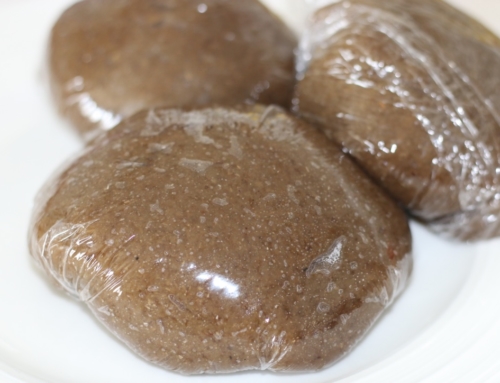Okra
Botanically, okra belongs to the mallow family. Much like real marshmallow, the mucilage, a sticky substance containing polysaccharides, helps improve digestion and may be used in the treatment of gastritis, gastric ulcer and liver/gallbladder cleansing. Okra’s mucilage helps to lubricate and soothe the bowel, protecting it from chronic inflammation that can lead to irritable bowel syndrome.
1) Eating okra helps to rid the body of toxins and excess cholesterol. During the process of digestion, bile which is largely made up of cholesterol soaks up acids and toxins from the body. The soluble pectin-based mucilaginous fibre in okra binds with this toxic bile and allows it to be eliminated quickly. If these toxic materials sit in the bowel too long they can be reabsorbed causing inflammation, leading to bowel disease. This same process eliminates excess cholesterol from the body thereby lowering serum cholesterol levels and reducing the risk of heart disease.
2) Compared to over-the-counter constipation medications, okra is much cheaper and has none of the side effects associated with this type of medication. The insoluble fibre in okra absorbs water and ensures bulk in the stool, while the soothing and lubricating quality of the mucilage found in okra can aid in elimination and reduce colorectal cancer.
3) Okra helps to control blood sugar. Regulating blood sugar is a key factor in the prevention of diabetes and heart disease. The fibre in okra controls the rate at which sugar is absorbed from the small intestine into the blood stream.
4) Okra can boost your immunity. The fibre found in okra also feeds the good bacteria in your gut. Maintaining a healthy ratio of good to bad bacteria is crucial to keeping the immune system functioning. Okra is also a great source of vitamin C, which can reduce episodes of cold and cough and protect the body from harmful free radicals.
5) Eating okra can protect you from developing stomach ulcers. The bacteria heliobacter pylori (or h. pylori) is known to cause stomach ulcers. Okra contains glycosylated compounds which have been shown to inhibit h. pylori from attacking the lining of the stomach.
Make Delicious Nigerian Okra Soup
Article and Picture credit given to ca.shine.yahoo.com






Thanks for the enlightenment. Okro is a pure veggie. Pls more tips on weight loss diet. I weigh 90kg
Thanks darling for this piece. How can one make a very low calorie pot of okra soup for weight watching?
Thanks for this info on okra.
you are welcome
Thank u so much! Am a lover of okra soup!
Your blog has blessed me so much.
stay blessed n keep u the good work!
Thank you :)
Wow,
I never knew there were this much health benefits from Okra.
Thanks for sharing
You are welcome